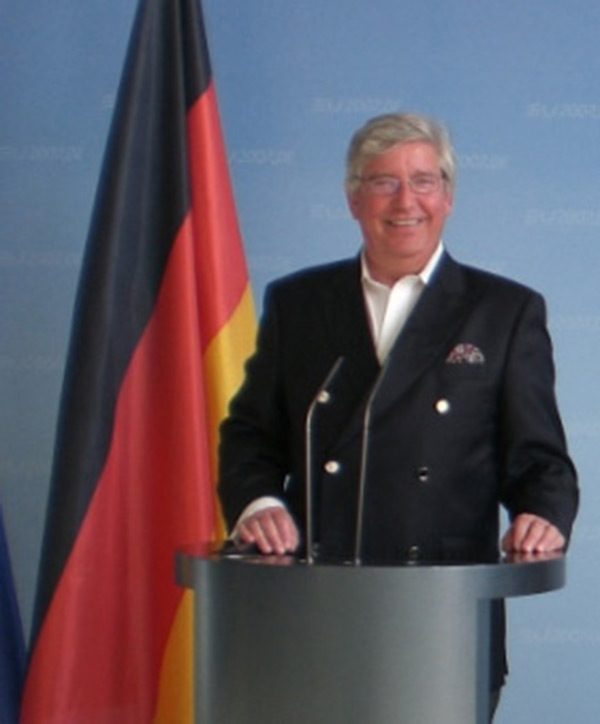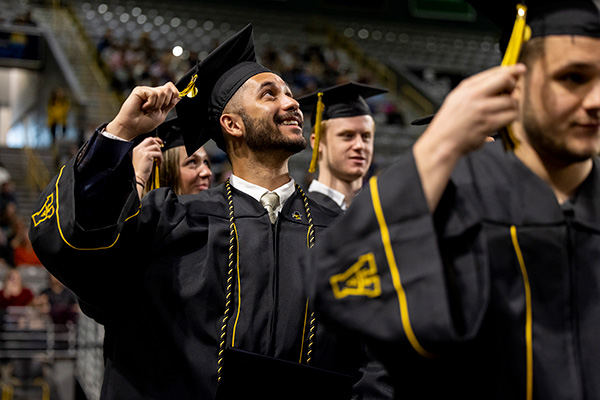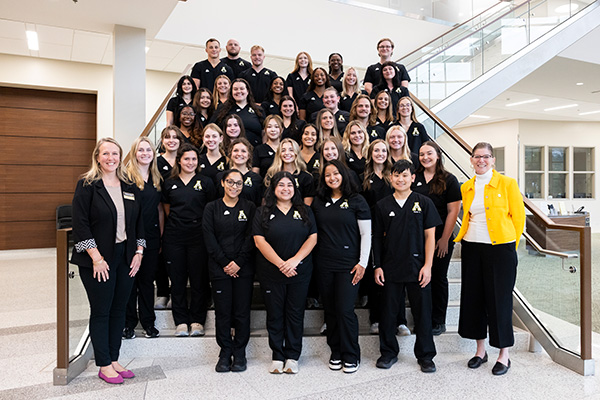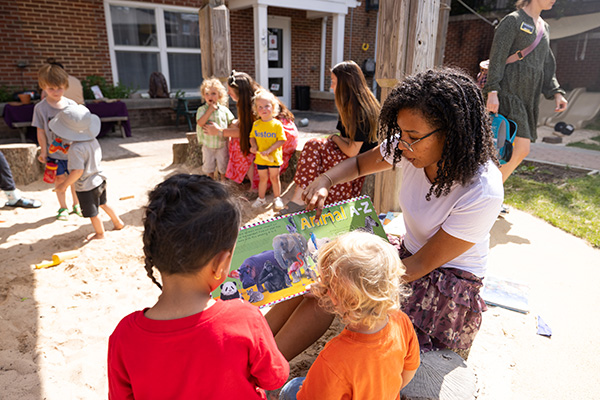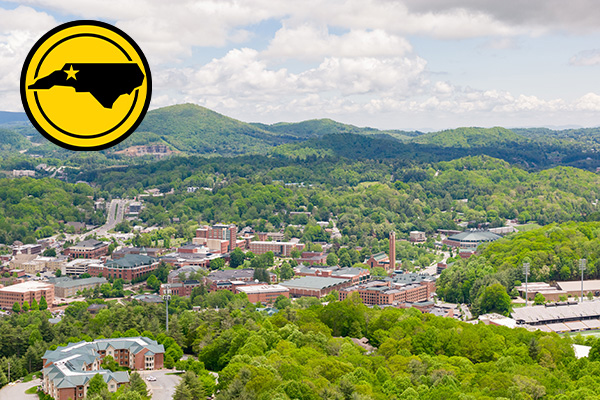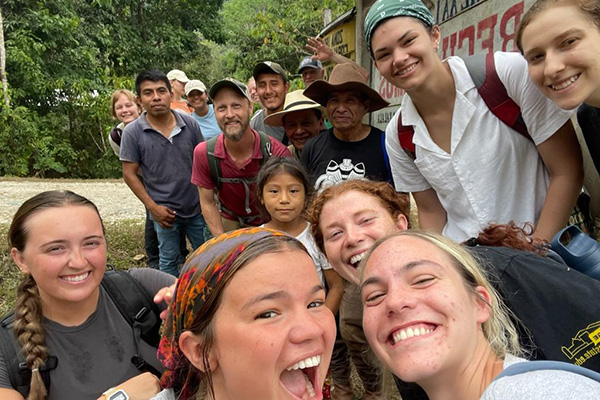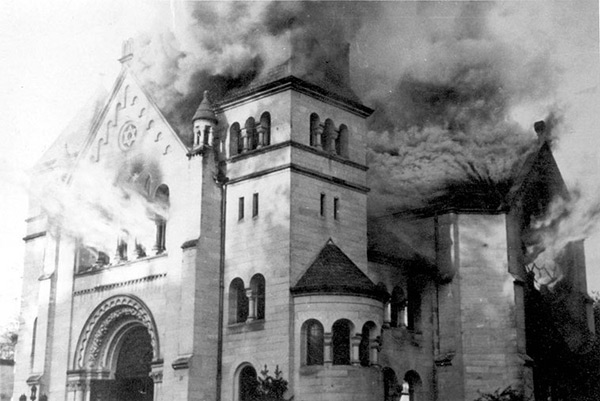
Hundreds of synagogues, such as this one, along with thousands of homes and stores were destroyed during Germany’s Kristallnacht, the “Night of Broken Glass.” Close to a hundred German and Austrian Jews were killed and some 26,000 Jewish men were deported during the nationwide pogroms that began the night of Nov. 9, 1938.
BOONE—Appalachian State University will host a gathering and commemoration of Kristallnacht, the November 1938 anti-Jewish pogroms in Nazi Germany, Nov. 10 from 4-5 p.m. at the Turchin Center for the Visual Arts. The event will feature Klaus Becker, the Federal Republic of Germany’s Honorary Consul to North Carolina. The public is invited.
Becker’s remarks will shed light on the Federal Republic’s coming to terms with the Nazi past, Jewish life in Germany today, and the present state of German-American relations. He will be joined by Appalachian’s Provost Dr. Darrell Krueger; Dr. Thomas Pegelow Kaplan, director of the Center for Judaic, Holocaust, and Peace Studies; and Ira Abrams, co-president of the Temple of the High Country.
Becker is a native of the university town of Marburg in Hesse. He grew up in the Ruhr Valley, site of Germany’s main steel producing companies, where his father worked as a technician. He has lived in Germany, Italy, Brazil and the U.S. His international steel trading company, Nirosteel, is based in Charlotte. He has served as president of the N.C. Chapter of the German-American Chamber of Commerce for years. In 2013, he accepted the appointment as the Federal Republic of Germany’s Honorary Consul to North Carolina.
Kristallnacht (or the “Night of Broken Glass”) refers to the nationwide pogroms instigated by Nazi Propaganda Minister Joseph Goebbels in coordination with Adolf Hitler that began during the night of Nov. 9, 1938. Mainly carried out by SA and SS units, the pogroms lasted throughout Nov. 10 and, at many places, through Nov. 12 and longer. In the process, the Nazis and other Germans and Austrians broke much more than the glass of synagogues and stores. They killed close to a hundred German and Austrian Jews. Many more were driven to commit suicide. Some 26,000 Jewish men were deported to concentration camps in the Reich. The SA, SS and their helpers plundered and destroyed thousands of Jewish stores and homes as well as hundreds of synagogues. Unlike Imperial Russia, modern Germany had not been the site of a pogrom in modern times and this mass crime marked a key shift in the Nazi regime’s anti-Jewish policies that culminated in a systematic genocide during the subsequent war.
The gathering is organized by Appalachian’s Center for Judaic, Holocaust, and Peace Studies and co-sponsored by the Temple of the High Country. The Turchin Center for the Visual Arts is located on 423 West King St. in Boone. For more information, email [email protected] or call 828-262-2311.
About the Center for Judaic, Holocaust, and Peace Studies
Appalachian State University’s Center for Judaic, Holocaust, and Peace Studies was founded in 2002 to develop new educational opportunities for students, teachers and the community. Located administratively within the College of Arts and Sciences, the Center seeks to strengthen tolerance, understanding and remembrance by increasing the knowledge of Jewish culture and history, teaching the history and meaning of the Holocaust, and utilizing these experiences to explore peaceful avenues for human improvement and the prevention of further genocides.
The Center for Judaic, Holocaust, and Peace Studies is an associate institutional member of the Association of Jewish Studies, a member of the Association of Holocaust Organizations and a member of the North Carolina Consortium of Jewish Studies.
About Appalachian State University
As a premier public institution, Appalachian State University prepares students to lead purposeful lives. App State is one of 17 campuses in the University of North Carolina System, with a national reputation for innovative teaching and opening access to a high-quality, cost-effective education. The university enrolls more than 21,000 students, has a low student-to-faculty ratio and offers more than 150 undergraduate and 80 graduate majors at its Boone and Hickory campuses and through App State Online. Learn more at https://www.appstate.edu.
What do you think?
Share your feedback on this story.
